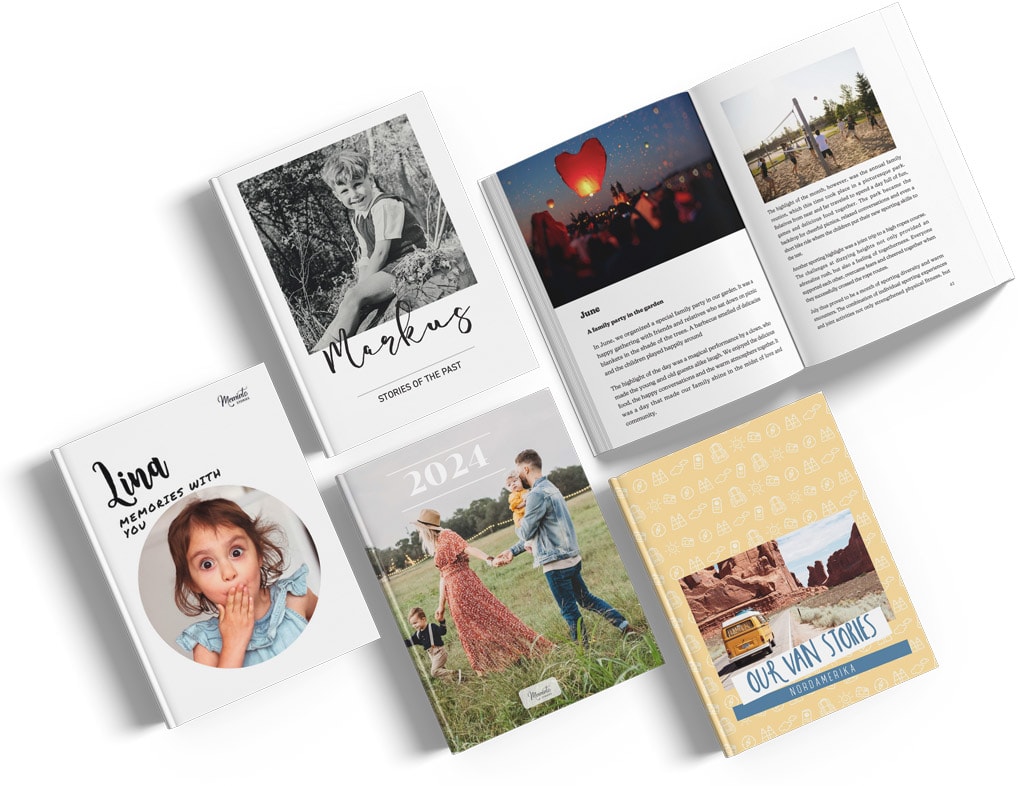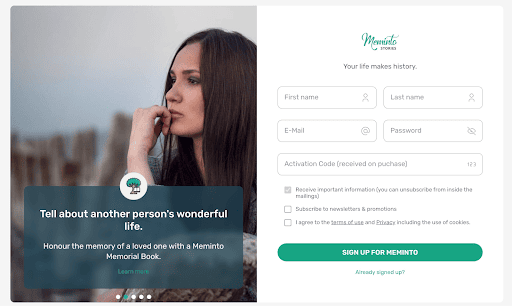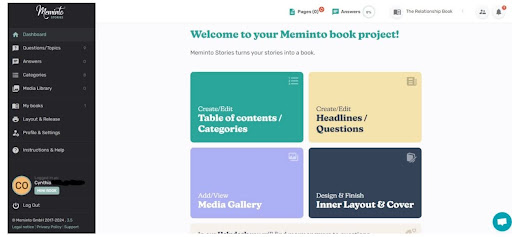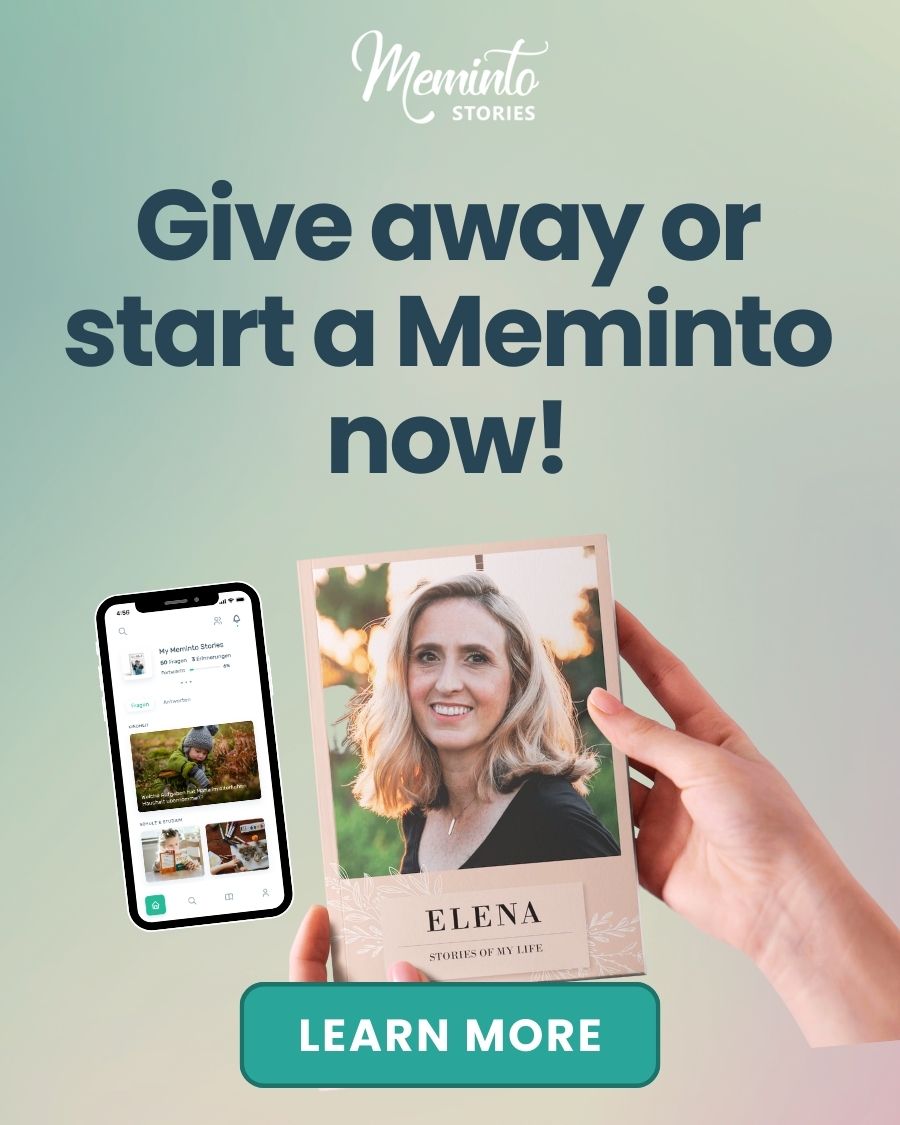As our loved ones age, they may start to experience memory loss due to dementia. It can be tough to watch them forget special moments that have been a big part of their lives. In fact, about 5-8% of seniors over 60 live with dementia, and as time goes on, the number grows.
But there’s hope. While dementia can take away the ability to remember, it doesn’t have to take away the memories themselves. By creating a memory book, we can preserve those precious moments and help seniors revisit the stories that shaped them.
This guide will walk you through how to create a memory book for seniors with dementia. Read through to learn a thoughtful way to keep their memories alive and close at heart.
Let’s get started!
Key Takeaways
- A memory book is a meaningful way to preserve the stories and experiences of seniors with dementia. It helps celebrate their lives and creates connections with loved ones. The process can bring joy and comfort.
- Use thoughtful prompts to spark conversations and unlock cherished memories. Keep questions simple and engaging to encourage participation. This approach builds deeper connections and shared experiences.
- Avoid common pitfalls like overwhelming details and negative topics. Focus on positive memories to create an enriching experience. Tools like Meminto can help you through the process and enhance the final product.
What is a Memory Book?
A memory book is a personal collection of photographs, stories, and mementos that captures the important moments in someone’s life. It’s a way to gather memories that might otherwise be forgotten, offering a tangible link to the past.
The power of memory books should not be underestimated. When country music legend Glen Campbell was diagnosed with Alzheimer’s, his family created a memory book filled with highlights of his career and personal life. This allowed him to reconnect with those special moments, offering comfort and joy in difficult times.
By preserving these moments in a memory book, you get to create a keepsake. It will provide a way to reflect on the past and celebrate the beautiful memories that define your or a loved one’s journey.

What can be Written in a Memory Book?
A memory book is a canvas for capturing the essence of a person’s life, and there are countless ways to fill its pages. From photographs to memorabilia, each element adds depth and richness to the story being told. Here are some ideas for what can be included to create a heartfelt memory book:
- Photos: You can include pictures from various stages of life like childhood, family gatherings, vacations, and significant milestones. Visuals are powerful reminders of happy times and familiar faces.
- Memorabilia: Add small keepsakes like ticket stubs from concerts, postcards from trips, or even pressed flowers. These tangible items can evoke strong memories and feelings.
- Personal Stories: Write down anecdotes that highlight significant moments or funny incidents. These stories provide context and personality to the memories shared.
- Favorite Quotes: Include quotes that resonate with you or the individual, whether they’re inspirational sayings, song lyrics, or memorable lines from books or movies. These can serve as a reflection of values and beliefs.
- Handwritten Notes: You can also add personal messages from family and friends gotten in the past . These notes create a sense of connection and community.
- Life Timeline: Create a timeline that outlines important life events, such as birthdays, weddings, career achievements, and travels. This provides a structured way to see the journey of a person’s life.
- Hobbies and Interests: Document hobbies, passions, or skills that have been a significant part of their life. Whether it’s gardening, cooking, or crafting, these details add a personal touch.
- Family Tree: Include a simple family tree or a list of family members. This helps to preserve connections and relationships that are vital to the individual’s story.
By combining these elements, a memory book becomes a rich record of experiences, emotions, and connections. With it, you can create a cherished keepsake that celebrates life at different stages.


How Does a Memory Book Help Seniors with Dementia?
Creating a memory book for seniors with dementia is a heartfelt way to honor their life story and keep precious memories alive. As dementia progresses, they may struggle with memory loss and confusion, making it challenging for them to recall the significant events and people that have shaped their lives. A memory book serves as a lifeline, gently guiding them back to those cherished moments.
One of the most profound ways a memory book helps is by providing familiarity and comfort. When a senior flips through the pages filled with photographs and personal stories, they may find a sense of recognition that brings warmth and joy. It can spark emotions that bridge the gap created by cognitive decline, evoking smiles and even laughter as they reconnect with their past.
Additionally, memory books can be an effective tool for communication. For family members and caregivers, they serve as prompts to initiate conversations. Reading aloud from the book can encourage reminiscing and storytelling, helping to create meaningful interactions that may be otherwise difficult to achieve. These moments of connection can reduce feelings of isolation and anxiety, reminding seniors that they are loved and valued.
The process of creating a memory book can be a fulfilling activity for both you, the senior, and families. It encourages collaboration and bonding as loved ones come together to gather stories and share experiences. This not only strengthens relationships but also helps seniors feel more engaged and involved in their own narrative.
In essence, a memory book is more than just a collection of memories. It’s a powerful tool that builds connection, evokes emotions, and enriches the lives of seniors with dementia. By creating a memory book, you provide a precious gift. It’s a way for them to hold onto their identity and share their story, even as their memories begin to fade.
Prompts for Writing a Memory Book for Seniors with Dementia
Creating a memory book for a senior with dementia can be a rewarding experience, especially when you have the right prompts to guide the process. Asking thoughtful questions can help unlock memories and inspire meaningful stories.
Below are a variety of prompts to help you engage seniors with dementia and fill their memory book with treasured moments:
Family and Childhood
- What is your earliest memory?
- Who was your best friend growing up?
- Describe your childhood home.
- What was your favorite game or activity as a child?
- Can you share a story about a family tradition?
- What were your parents like?
- What did you enjoy doing with your siblings?
- What was your favorite subject in school?
- Describe your favorite toy.
- What was a typical family meal like?
Life Events and Milestones
- When did you first learn to ride a bike?
- Can you remember your first day at school?
- Describe your wedding day.
- What was your first job?
- What achievement are you most proud of?
- Can you recall a memorable vacation?
- What was your favorite holiday celebration?
- What significant historical events have you witnessed?
- What was the happiest moment of your life?
- What was your first car?
Hobbies and Interests
- What hobbies or activities do you enjoy?
- Do you have a favorite book or author?
- What is your favorite movie or TV show?
- Can you describe a memorable concert or performance you attended?
- What is your favorite recipe or dish to cook?
- Have you ever played a musical instrument?
- What crafts or DIY projects do you enjoy?
- What was your favorite outdoor activity?
- Do you have a favorite sport or team?
- What is your favorite way to relax?
People and Relationships
- Who has been the most influential person in your life?
- Can you share a funny story about a friend?
- What qualities do you admire in a person?
- What is the best advice you’ve ever received?
- Describe a memorable moment with your children or grandchildren.
- Who was your first crush?
- What values did you learn from your parents?
- How did you meet your spouse or partner?
- Can you describe a time you helped someone in need?
- What friendships have meant the most to you?
Reflections and Insights
- What is your favorite quote or saying?
- How has your perspective on life changed over the years?
- What are the most important lessons you’ve learned?
- What makes you happy?
- How would you like to be remembered?
- What are you grateful for today?
- What dreams or goals did you have when you were younger?
- What is one piece of wisdom you would like to share?
- How do you define success?
- If you could relive one day from your life, which would it be and why?
The list of questions to ask is endless, and the prompts above are just a starting point. As you engage in conversation, you may find that new questions naturally arise, allowing the discussion to flow more freely.
Don’t feel limited by this list; let the stories unfold organically. Each question has the potential to open up a treasure trove of memories, ensuring that the memory book becomes a vibrant reflection of a life well-lived.
Things you Should Avoid While Writing a Memory Book for Dementia
- Avoid Overwhelming Details: Keep prompts and questions simple. Too much detail can confuse or frustrate the senior, making it harder for them to engage with the memories.
- Don’t Rush the Process: Give them plenty of time to think and respond. Rushing can create stress and anxiety, which may inhibit their ability to recall memories.
- Avoid Negative Topics: Steer clear of painful or distressing memories. Focus more on positive experiences to evoke joy and comfort, rather than sadness or confusion.
- Don’t Correct Their Memories: If they recall something differently than you remember, don’t correct them. Memories can be subjective, and it’s important to honor their perspective.
- Avoid Complex Language: Use clear and straightforward language when asking questions. Complicated wording can create barriers to understanding, making it harder for them to engage.
- Don’t Assume Their Preferences: Ask about their favorite memories, rather than assuming what they might like to include. Their unique perspective is vital to creating a meaningful memory book.
- Avoid Distractions: Choose a calm and quiet environment for writing sessions. Distractions can make it difficult for them to concentrate and recall their memories effectively.
- Don’t Use Pressure Tactics: If they seem uninterested or unwilling to participate, avoid pushing them. Letting them take breaks or revisit the memory book later can foster a more positive experience.
- Avoid Neglecting Their Comfort: Pay attention to their comfort level throughout the process. Ensure they are physically comfortable and emotionally at ease while sharing their stories.
What Tool Makes it Easier to Make a Memory Book for Seniors with Dementia?
Meminto is an effective tool for creating a memory book for seniors with dementia. Our user-friendly platform simplifies the process, making it accessible and enjoyable for both seniors and their families. Here’s how Meminto benefits the memory book creation process:
- Meminto has an easy-to-navigate interface for seniors to engage with content.
- Our platform provides helpful prompts and questions to spark memories.
- You can easily upload and organize photos alongside written stories.
- Families can collaborate in real-time to share memories and insights.
- Meminto offers a variety of customizable templates and layouts.
- Our app securely stores all memories for future generations.
- Meminto can send reminders to encourage regular interaction with the memory book.
By using Meminto, families can create a meaningful memory book that records the essence of their loved ones, making the process enjoyable and effective.
See how to use Meminto in the next section.
How to Make a Memory Book for Seniors with Dementia using Meminto
- Go to https://meminto.com/product/life-book/, and click “Get Started”

- Choose Who Will Write the memory book– Select either “I Will” or “Someone Else Will” to determine the author.
- Select Pages and Preferences– Choose the number of pages and input any other options you prefer. The system will calculate your total, then click “Add to Cart.”
- Enter Shipping and Payment Details – Fill in your shipping information and choose your preferred payment method. Apply any promo code if available for a discount.
- Review and Confirm Your Order– Check all details and confirm your order. You can track the delivery status from the checkout page.
- Check Your Email– Look for the confirmation and activation code. Go to memin.to/register to activate your account.
- Enter your personal information, activation code, and password. Click “Sign up for Meminto” to start writing your story.

Personal details - Set Preferences– Choose your preferred language (English or German) and the day you’d like to receive memory prompts.
- Personalize Your Journal – Select the layout and design options to customize your journal.
- Customize the book to fit your needs.

11. Watch the instructional video below so you can get better guidance on how you can use the Meminto app.
- Go to https://meminto.com/product/life-book/, and click “Get Started”
Over to You!
We’ve laid out a comprehensive guide for creating a memory book for seniors with dementia. This is your chance to make a lasting impact. Embrace the opportunity to connect with your loved one and preserve their precious memories. Recording their unique stories is a beautiful way to celebrate their lives. Ensure to avoid the “don’ts” for a positive and enriching experience.
If you’re ready to get started, request a demo of Meminto today to see how memories can come to life easily and beautifully.



















